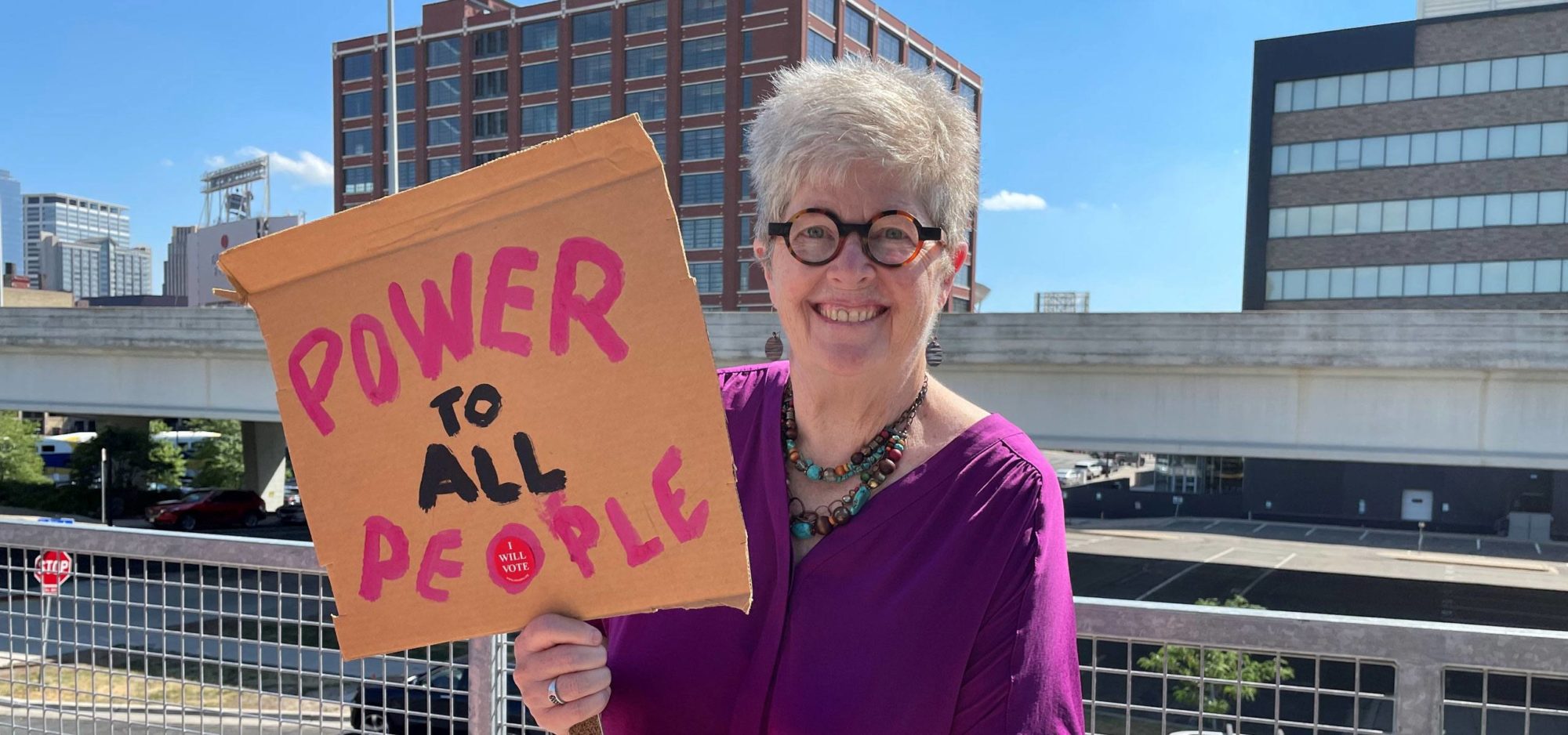Reflections from
My Time in Philanthropy

Retirement? ME?
I simply could not imagine it. Twenty-five years ago, when I was dating Barbara (the woman who would become my wife after the wins for marriage equality), I declared with great certainty that I would be working until I was at least 80 years young. Barbara was annoyed by my assertion until I explained that my work experiences rarely felt like jobs. Mostly, my work has given me avenues for service and creativity. And that has continued through today.
But here I am (still far from 80!), choosing to step into retirement. I find myself excited to make space for the new possibilities that always live within our next chapters. I’ve decided that taking this step grants me permission to share two reflections from my time in philanthropy. I hope you will indulge me.
In 2013, I was hired to implement the Minneapolis Foundation’s civic engagement strategy, then a brand-new program area for the Foundation. It’s very gratifying to be able to say that in the eight years since then, we have exceeded nearly all our goals to meaningfully strengthen civic leadership and activism in our region. And I was thrilled when civic engagement strategies were carried forward into the new strategic framework that now guides the Foundation’s work.

Civic participation is indeed powerful because, when done well, it fosters self-determination and agency. Self-determination. Agency. These are not words typically used in philanthropy when we talk about outcomes for investment in civic engagement. It’s common to focus on voting, for example, but voting is just the proverbial tip of the iceberg. It’s easy to grab on to voter turnout as an outcome, because it is visible and measurable. However, we should remember that the deeper work of community organizing is fostering self-determination. I want to elevate that fact that the measurable participation outcomes our community has celebrated after each election season—and also after the 2020 Census—were mostly the result of year-round work that many Minnesotans, especially at local nonprofits with deep roots in community, have done to bring people together to shape their futures through collective action. That unglamorous work is exactly what makes civic participation such a powerful strategy to advance systems change. But that is also the work philanthropy sometimes chooses to avoid because in addition to being hard to measure, it can seem (and be!) very slow, controversial, and messy.
As I reflect on my time at Minneapolis Foundation, I am most grateful for the opportunities I have had to support community work that has been slow, controversial, and messy. I believe that these are the required ingredients in all recipes for meaningful systems change, and ultimately self-determination for all.
During my eight years at the Minneapolis Foundation, my work weeks usually hovered around 60 to 65 hours per week. Meanwhile, leaders and staff at most nonprofits I encountered were regularly working 80 (or more!) hours per week. No matter how hard I worked, I saw that folks on the ground were working harder, week after week. And it was clear from the beginning that no amount of funding we could offer would ever be sufficient. So, to try to make up for that, I would:
- Respond quickly to phone calls and emails.
- Demystify philanthropy.
- Give honest, direct feedback.
At first, I was startled when people expressed their amazement that I returned their phone call or responded to an email. Too often, I was told, “Most funders don’t return my calls.” Or when I shared feedback about the weaknesses of an application, people often told me, “Funders usually just say the proposal was okay, but it was a very competitive process.”
We in philanthropy must always strive for more transparency and authenticity in our work.
Hearing comments like these pushed me to stay vigilant about my own practice. For me, prioritizing customer service with grantseekers was one small way I could offset the power differential that exists between philanthropy and grantseekers. It also became one of the joys of my role, because it led to many new relationships that I will take with me as I move on.
As I close this chapter of my life, I thank my amazing colleagues—current and past—at the Minneapolis Foundation. Through thick and thin, you have demonstrated SO MUCH dedication to serving our communities. I give a special shoutout to Jo-Anne Stately, the one person still on staff who was in my department when I started. Jo-Anne’s grace and wisdom, commitment to community, and follow-through set an example of excellence that I have worked hard to follow over the years. Finally, I send big, open-hearted appreciation to all the community leaders and nonprofit staffers who shared your knowledge, pain points, and vision with me as you were working relentlessly to ease community burdens while challenging and reshaping systems. It has been a privilege to serve as a Director of Impact at the Minneapolis Foundation.


